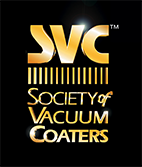Home » Technical Program » Photonically-Induced Transformations of Thin Films and Surfaces
Photonically-Induced Transformations of Thin Films and Surfaces
Lasers, flash lamps, and other highly energetic illumination sources enable rapid thermal processing of surfaces and thin films for scaled, low-cost materials and technologies in areas of high economic, societal and environmental impact. Realization of surface-selective rapid thermal annealing coupled with high-throughput are especially attractive features of photonic materials engineering.
This session provides a forum to discuss pioneering technological applications bound by the common thread of photonically-based methods for surface and thin film annealing, materials synthesis and surface patterning.
We welcome submissions addressing the following key areas:
- Surface selective annealing of bulk materials and thin films with light typically in the <100 ms range,
- Wafer based and large area in-line applications,
- Laser and flash-lamp-based conversion and synthesis of high quality, crystalline materials (transparent and conductive layers, energy harvesting, sensor material, low-power computing, multifunctional ‘More than Moore’ electronic device technology, large area photocatalysts and smart materials for window applications),
- Rapid patterning of microelectronic devices without photolithography (sensors, medical implants, and hardware for experiments and IoT devices),
- Hybrid systems and hybrid processes integrating different plasma technologies,
- Atmospheric-pressure plasma processing, including dielectric-barrier discharges and plasma jets,
- Plasma diagnostics for understanding plasma dynamics and plasma-material interaction,
- Modelling and simulation of plasma-surface interactions, and
- Novel plasma processing methods such as treatments of nanoparticles, nanomaterials, and liquids, as well as plasma catalysis.
This session is particularly relevant for industry practitioners, researchers, and scientists:
- Working on the design, scale-up, and implementation of advanced plasma sources and coating technologies,
- Developing novel plasma-based processes or deposition techniques, and
- Engaged in the experimental diagnostics of laboratory or industrial plasma systems.
By fostering a technical exchange among these communities, the session aims to advance both the fundamental science and practical applications of plasma processing in thin film technologies.
Photonically-Induced Transformations of Thin Films and Surfaces TAC Co-Chairs: Christopher Muratore, University of Dayton, cmuratore1@udayton.edu; Jörg Neidhardt, Fraunhofer FEP, joerg.neidhardt@fep.fraunhofer.de

